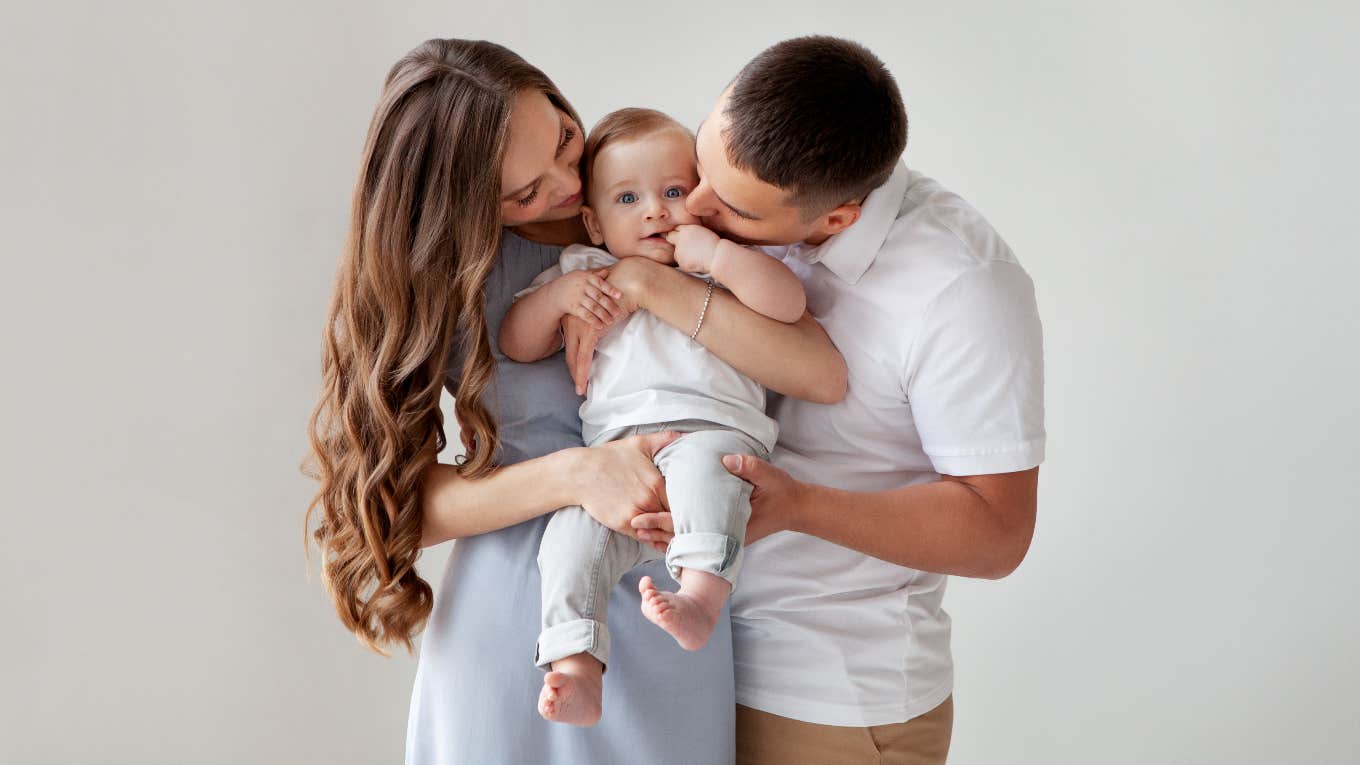Kids Inherit Generational Trauma From This Parent, Says New Study
Which parent can you blame for passing down their trauma?
 Anna Zhuk | Shutterstock
Anna Zhuk | Shutterstock Those who have experienced childhood trauma know all too well that the impact is long-lasting. It doesn't just disappear when you grow up, move away from home, and start a life and family of your own.
A new study found that the effects of childhood trauma are even more enduring than you might expect — at least for men. The research showed that generational trauma may be passed down from fathers to children through their sperm cells.
A new study found that kids inherit generational trauma from their fathers.
The study, which was published in the Journal of Molecular Psychiatry early this year, focused on epigenetics — the study of how your environment and life experiences affect the way your genes work.
"Epigenetics are basically saying which genes are active," the study's lead author Dr. Jetro Tuulari told Live Science.
The researchers discovered something interesting — that emotional turmoil may be embedded at a molecular level in sperm cells.
To come to this conclusion, they analyzed the sperm cells of 58 individuals in their late 30s and early 40s. They used the Trauma and Distress Scale (TADS), "an established questionnaire that queries people about their memories of emotional or physical neglect, as well as emotional, physical or sexual abuse."
They discovered that the sperm of men who reported having experienced childhood trauma differed from that of men who had less trauma.
“Our findings support that earlier stress exposures, even from as far as childhood, can leave epigenetic imprints in sperm cells,” the study reads.
"This pattern held even after the researchers checked if the differences could be attributed to other factors, such as drinking or smoking behaviors," Live Science contributor Marianne Guenot noted.
Still, while these findings are certainly intriguing, it is important to note that more research is necessary. Epigenetic changes were found in the sperm of fathers with high childhood trauma; however, it is unclear if it is actually passed down to their children. Tuulari emphasized that this aspect of the research is still speculative, as studies in animals have shown epigenetic inheritance, but the evidence in humans is not yet conclusive.
Childhood trauma has lasting effects.
While it is not definitively proven that trauma is passed down to future generations through their genes, the effects of trauma are undoubtedly long-lasting. From PTSD and dissociation to anxiety and depression, childhood trauma has a way of sticking with you throughout your life.
Trauma also affects how you parent. Regardless of your gender — or the epigenetics of your sperm cells — those who experienced trauma during their youth parent differently.
Psychology Today suggested that parents with childhood trauma may have difficulties regulating their emotions, being an authority figure, and forming healthy bonds with their children. They may also be overprotective, possess a victim mentality, or fear repeating the cycle of trauma.
Thankfully, it is possible to heal from trauma, and having a traumatic upbringing does not mean that your children will too.
Erika Ryan is a writer working on her bachelor's degree in Journalism. She is based in Florida and covers relationships, psychology, self-help, and human interest topics.

